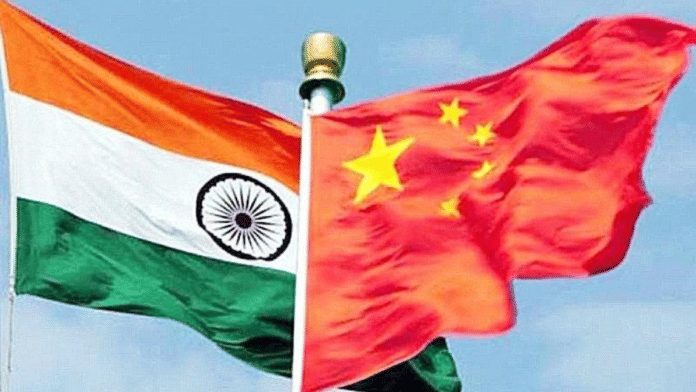New Delhi: The Chinese Communist Party’s (CCP’s) tabloid mouthpiece The Global Times has, in a rare move, carried an opinion piece praising India’s ‘rapid economic and social development’ and ‘great power strategy’ under the leadership of Prime Minister Narendra Modi.
“India has moved from emphasising its democratic consensus with the West to highlighting the ‘Indian feature’ of democratic politics,” stated the article, written by Zhang Jiadong, director of the Center for South Asian Studies at Fudan University, who visited India twice in the past four years.
The Global Times has a history of being very critical of India since border tensions began between the two countries in 2020. However, the opinion piece published by the daily is a deviation from its past.
In the article, titled ‘What I feel about the ‘Bharat narrative’ in India’ and published Tuesday, Jiadong wrote that India is a major power that has undergone rapid changes in its internal and external strategies, posing challenges to both itself and the international community.
“It appears that a transformed, stronger, and more assertive India has become a new geopolitical factor that many countries need to consider,” he added.
Jiadong wrote that since Modi came to power, he has advocated for a multi-alignment strategy, promoting India’s relations with the US, Japan, Russia and other countries and regional organisations. “India’s strategic thinking in foreign policy has undergone another change and is clearly moving towards a great power strategy.”
Exploring how India is attempting to escape its identity as a “political dwarf” from its colonial past and is seeking to mentor the world, the Chinese professor mentions External Affairs Minister S. Jaishankar’s comments on New Delhi’s push for a “Bharat narrative”.
“With its rapid economic and social development, India has become more strategically confident and more proactive in creating and developing a Bharat narrative,” the professor said.
At the Knowledge India Visitor’s Programme organised by the Indian Council for Cultural Relations (ICCR) last month, Jaishankar stressed the importance of building a comprehensive narrative for ‘Bharat’ and explained how ‘Bharat’ embodies the concept of ‘Aatmanirbhar Bharat’, which means self-reliant India, reflecting its resilience, self-sufficiency and talent.
Discussing this ‘Bharat Narrative’, Jiadong argued that India has shifted from emphasising its democratic consensus with the West to highlighting the “Indian feature” of democratic politics. “Currently, there is even more emphasis on the Indian origins of democratic politics,” he added.
India’s position in post-pandemic era
Jiadong also shared his observations on how India’s domestic and international affairs have changed dramatically in the past four years, especially after the Covid-19 pandemic.
He praised India’s achievements in economic development and social governance, saying, “On the one hand, India has made great achievements in economic development and social governance. Its economy has gained momentum and is on track to becoming one of the fastest-growing major economies.”
“However, potential risks and crises have also begun to unfold,” he added.
He also explored Indian academia’s changing attitudes towards Chinese scholars, becoming “more relaxed and moderate, instead of being stubborn at times”.
“When discussing the ‘trade imbalance’ between China and India, Indian scholars used to primarily focus on China’s measures to reduce the trade imbalance. But now, they are placing more emphasis on India’s export potential, actively seeking to reduce the trade deficit with China by taking the initiative and increasing Chinese imports from India,” Jiadong explained.
In 2022-23, India reportedly exported USD 450 billion worth of goods to China while importing USD 714 billion, resulting in a trade deficit of USD 263 billion between the two countries. China reportedly accounted for 32 percent (USD 83.1 billion) of India’s merchandise trade deficit in 2022-23.
(Edited by Richa Mishra)
Also Read: Eastward friction, Westward charm — China’s foreign policy in 2023 & what to expect next






